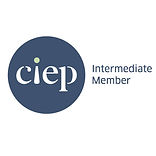
Mystery, Crime and Thriller, Romance and General Fiction, Children's, Middle Grade and Young Adult

Your story, expertly edited
Fiction editor, proofreader, guide and cheerleader
Is your book really ready to publish?
Fiction is an experience. An escape. A world to get lost in.
It’s immersive, thought-provoking and emotional.
At least, it should be.
Editing isn’t just about correcting errors – it’s about giving your story the best chance to resonate with readers.
Whether you’re planning to publish independently, submit to agents, or simply want your manuscript to shine, I provide the expert, caring support you need so you present the best possible version of your story.
'I hadn’t shown my book to anyone before, and was nervous... [Hayley's] perspective on my novel was truly enlightening, giving me specific ideas and encouragement just where I needed them.'
— Laura Ballou (contemporary fiction author)
Work with me
At 18, I read my first Agatha Christie novel, And Then There Were None, and fell in love with both her and the genre.
I marvelled at her intricately woven mystery and the careful planting of every clue. There was no thread left unfinished, no surplus characters and no needless complexities to distract me.
I knew then I wanted to help authors create that same enraptured feeling I felt for their readers.
Today, I combine that early passion with meticulous attention to detail, ensuring every manuscript gets the thoughtful care it deserves.

Courses and certifications
-
Knowadays 'Becoming a Proofreader'
-
The Publishing Training Centre
-
An Introduction to Proofreading
-
A Comprehensive Guide to Copyediting
-
An Editor's Guide to Editorial Style
-
Editor's Guide to Editing Fiction
-
Proofreading PDFs
-
-
Club Ed
-
DE 5: Manuscript Evaluation
-
-
WorldShift Summit 2025
Member
associations
-
The Chartered Institute of Editing and Proofreading (CIEP – intermediate member)
-
The Alliance of Independent Authors (ALLi – partner member)

Professionally trained and human!
Meet Hayley Rushbrook – Fiction editor and proofreader













